15 things to know before going to Japan

Japan is a captivating country filled with unique customs, culture, and breathtaking landscapes. To ensure a smooth and enjoyable trip, it’s important to prepare and understand crucial aspects of your visit. From navigating public transportation to embracing local etiquette, being informed can significantly enhance your experience. Additionally, you’ll want to be aware of Japan’s safety measures and natural disasters to stay secure while exploring. In this post, we’ll cover 15 things to know before going to Japan.
Understanding Japanese Culture
To truly appreciate your journey to Japan, it is vital to grasp the intricate layers of its culture. Japanese culture is a harmonious blend of rich traditions, modern innovations, and strong social norms.
From the ancient customs that have shaped the nation’s identity to the modern practices that characterize contemporary society, understanding the nuances of Japanese culture will enhance your overall experience in the country.
Traditional vs. Modern Japan
Traditional Japan is characterized by its deep-rooted customs and practices, including tea ceremonies, calligraphy, and martial arts.
These traditional aspects are often seen in historical districts, temples, and festivals that honor age-old practices.
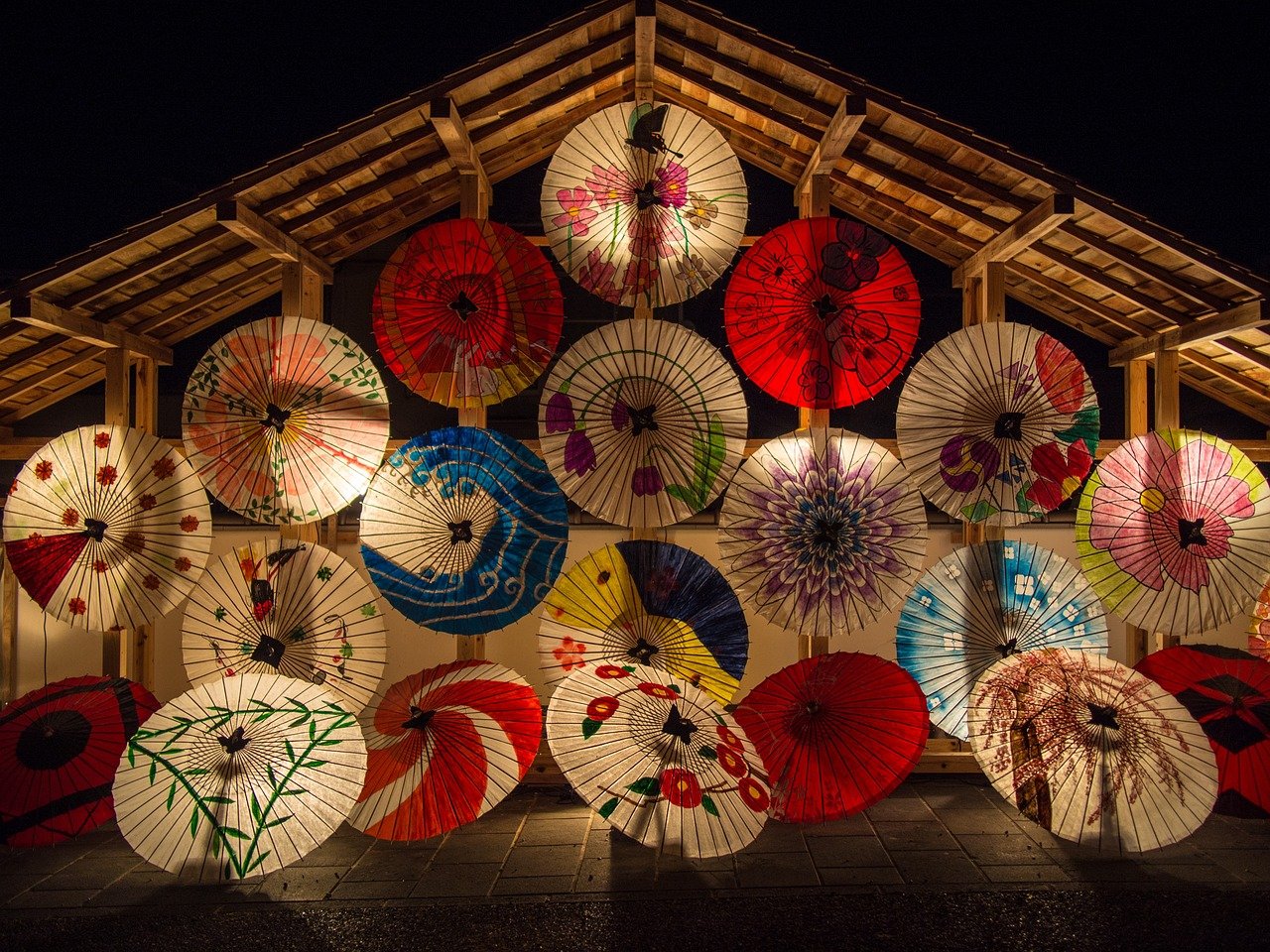
In contrast, modern Japan showcases a vibrant fusion of technology, pop culture, and contemporary lifestyles, especially evident in bustling cities like Tokyo and Osaka, where neon lights and skyscrapers dominate the skyline.
Both traditional and modern elements coexist harmoniously, creating a unique cultural tapestry that is integral to Japan’s identity.
You will find that many Japanese people take pride in their heritage while simultaneously embracing the innovations of the present.
This duality offers a fascinating glimpse into how the past and future continue to influence everyday life in Japan.
Importance of Etiquette
Understanding the importance of etiquette in Japan is critical to navigating social interactions smoothly.
Japanese society places a strong emphasis on manners, respect, and humility, with deeply ingrained customs that dictate behavior in both formal and informal settings.
For instance, bowing is a common greeting, and understanding the appropriate depth and duration of a bow shows your awareness of Japanese social norms.
To avoid unintentional disrespect, be mindful of local customs such as removing your shoes when entering homes, refraining from speaking loudly in public places, and the correct use of chopsticks.

These small gestures will not only enhance your experiences but will also demonstrate your respect for Japanese culture and traditions.
To further assist you, it’s important to remember that etiquette is not merely about following rules; it reflects your consideration and respect towards others.
From how you hand over or receive business cards (with both hands) to the general expectation of quietness in public transportation, these practices are often taken very seriously.
Observing these norms will improve your interactions and leave a positive impression on those you meet.
Language Basics
Etiquette extends into language as well, and knowing a few basic phrases in Japanese can significantly enhance your experience.
While many Japanese people, particularly in urban areas, understand some English, making an effort to learn simple greetings like “Konnichiwa” (Hello) or “Arigatou” (Thank you) shows your respect for their language and culture.
Additionally, the way you interact verbally often reflects the values of humility and politeness that are central to Japanese society.
This linguistic effort does not go unnoticed. Even a simple attempt at speaking Japanese can lead to warmer interactions and opens doors to deeper cultural understanding.
Embrace this opportunity to connect with locals by learning a few key phrases and understanding the context in which they are used. A little effort can go a long way!
Travel Essentials
Little do many travelers know that preparation is key to enjoying a smooth and hassle-free trip to Japan. Before you begin on your adventure, it’s important to understand the travel importants that will help you navigate the country with ease.
These include visa requirements, currency and payment methods, as well as health and safety tips, which will ensure you’re well-prepared for your journey.
Visa Requirements
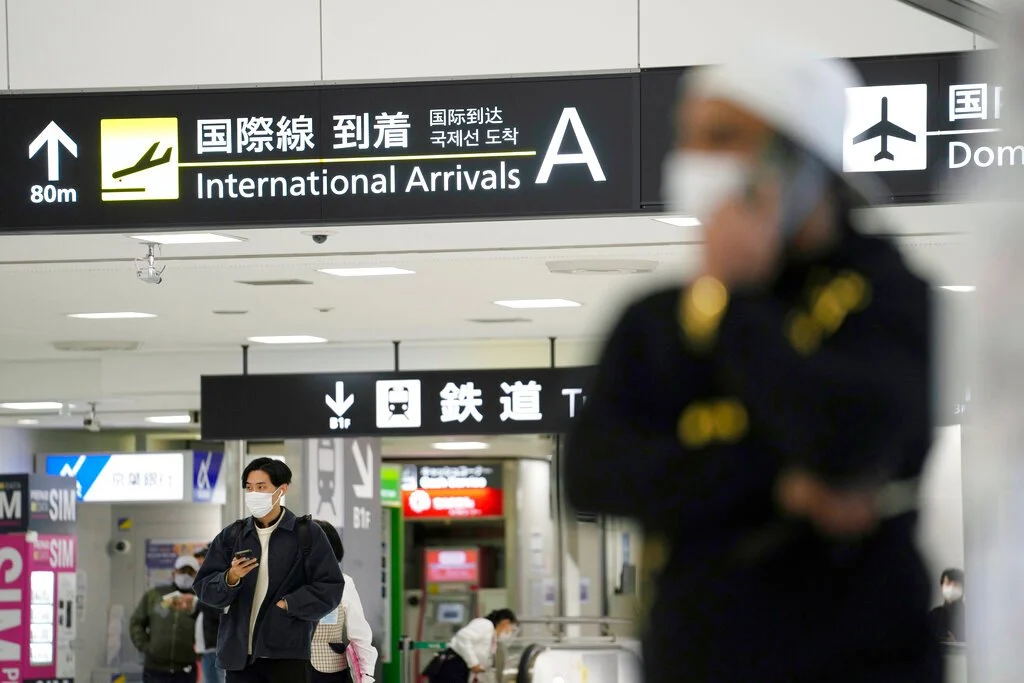
One of the first things you need to check when planning your trip to Japan is the visa requirements. Depending on your nationality, you may be able to enter Japan without a visa for tourism purposes, while others may need to apply for one in advance.
To find out your specific requirements, visit the official website of the Japanese embassy or consulate in your country.
Additionally, the length of your stay may vary based on your visa type, with tourist visas allowing stays ranging from a few days to three months. It’s important to have a clear understanding of these rules to avoid any complications on arrival.
Currency and Payment Methods
With the rise of digital payments globally, it’s important to familiarize yourself with Japan’s currency and payment methods. The Japanese yen (¥) is the official currency, and you’ll find that cash is still king in many areas.
While credit cards are increasingly accepted, especially in urban areas, it is a good idea to carry some cash with you, as some smaller establishments may not accept cards.

ATMs, especially in convenience stores like 7-Eleven, typically accept foreign cards and provide a user-friendly interface for withdrawing cash.
Currency exchange is also straightforward, with many options available, including airports, banks, and designated exchange offices. Ensure you monitor the exchange rates and plan accordingly to make the most of your money while in Japan.
Currency exchange offices can be found in major airports and city centers. They offer competitive rates, making it convenient to convert your home currency into Japanese yen.
Be aware of potential exchange fees and choose a provider with favorable terms to optimize your budget.
Health and Safety Tips
The safety and health of travelers are paramount when visiting a foreign country. The good news is that Japan consistently ranks as one of the safest countries to visit globally. Nonetheless, it’s important to take precautions to keep yourself protected during your travels. Here are some critical tips to keep in mind:
- Have a comprehensive travel insurance policy that covers emergencies and health issues.
- Stay updated on any local laws and cultural practices that may affect your experience.
- Keep emergency contact information easily accessible, including local emergency numbers and the contact details of your country’s embassy.
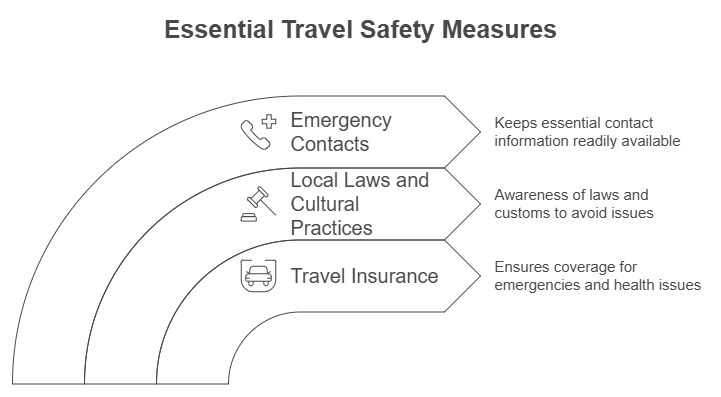
Assume that being aware of your surroundings and practicing basic safety measures will greatly enhance your travel experience in Japan.
Concerning health, it’s advisable to have a basic understanding of the medical facilities available. Most urban areas have quality hospitals and clinics, and pharmacies are easily accessible.
However, it’s wise to carry important medications and consult a healthcare professional regarding any vaccinations or health precautions necessary before traveling.
Awareness of these aspects will ensure you have a pleasant experience while prioritizing your well-being.
- Pack a basic first aid kit with necessary medications.
- Research the nearest hospitals or clinics in the areas you’ll be visiting.
- Understand how to communicate health issues in Japanese or have a translation app handy.
Assume that being prepared for health-related issues will not only safeguard you but also provide peace of mind during your travels.
Transportation in Japan
Keep in mind that transportation in Japan is highly efficient, but it can also be overwhelming for first-time visitors.
The country’s extensive public transport network includes trains, buses, and subways to help you get around with ease. Keeping a map handy, or using apps that offer English translations is a great way to navigate the system.
The trains are known for their punctuality, so ensure you arrive at the station on time to catch your ride. With frequent services, you won’t have to wait long in most cases, which can be a major advantage during your travels.
Navigating Public Transport
Transport in Japan can feel like a well-orchestrated symphony, and you are the conductor. To effectively navigate, start by familiarizing yourself with the local train lines and bus routes in the cities you plan to visit.
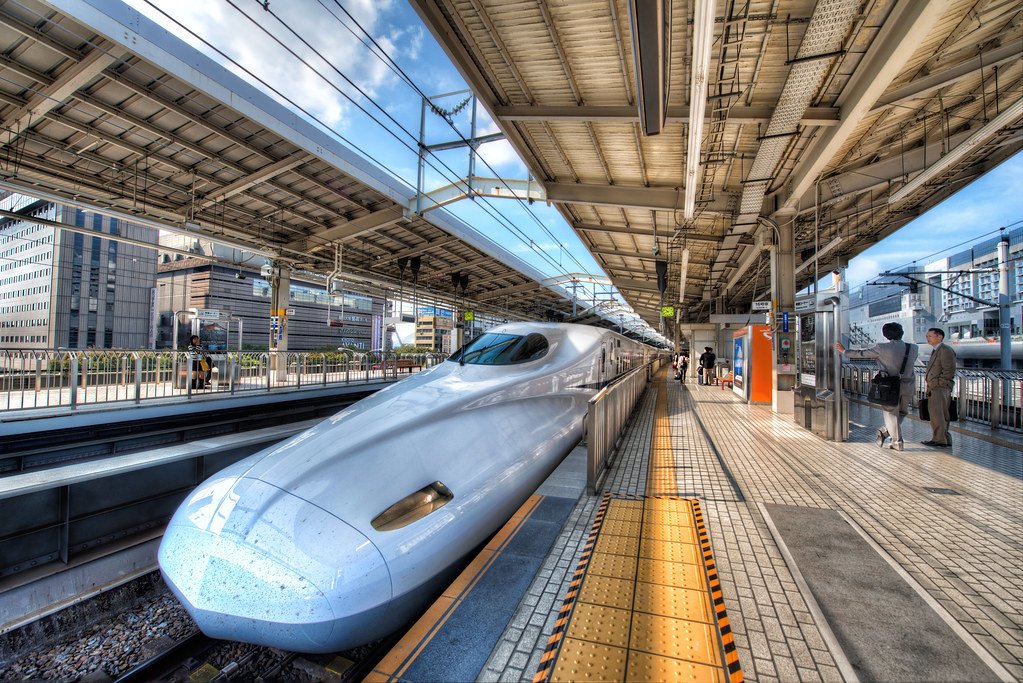
Major stations often have signage in English, making it easier for you to determine your route. If you need assistance, station staff are generally helpful, and there are usually information counters that can provide guidance.
As you explore, consider using Google Maps or transport apps specifically designed for Japan, which can give you real-time updates on train schedules and help you transfer between lines.
Don’t shy away from asking locals for help; Japanese folks are known for their politeness and are usually more than willing to assist you with directions.
Train Pass Recommendations
For an extensive trip across Japan, you might want to invest in a Japan Rail Pass. This special pass allows unlimited travel on most Japan Railways trains for a set number of days and is a fantastic way to save money if you plan on visiting multiple cities.
You can purchase this pass in advance online or at select locations in Japan, making it a convenient option for tourists.
A key point to keep in mind is that the Japan Rail Pass is only available for foreign tourists, so be sure to show your passport when purchasing. Depending on your itinerary, consider the regional passes as well; these can provide excellent value if you’re focusing on a particular area in Japan.
Furthermore, some private rail companies also offer their own passes, so it’s worth looking into those if you’re traveling to specific locations.
Taxi vs. Public Transit
Train travel is the most economical choice for getting around in Japan; however, there are times when taking a taxi may be more convenient.
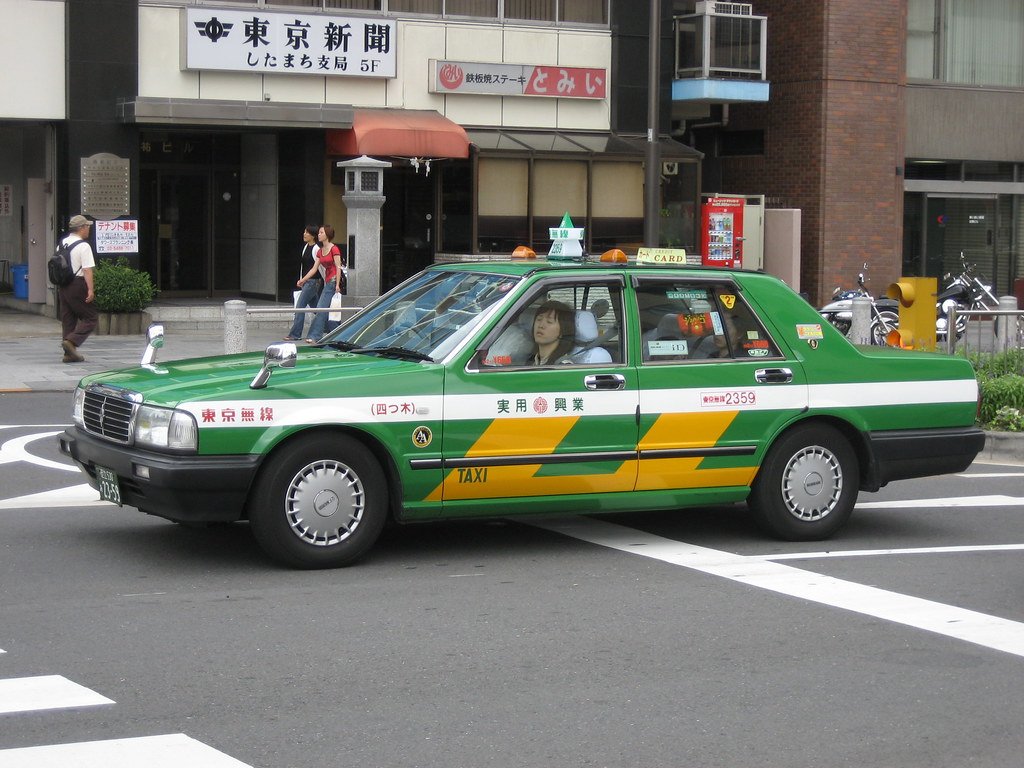
Taxis can be a safe and comfortable option, especially late at night or when you’re traveling with a group. Keep in mind, though, that taxi fares can add up quickly compared to public transit, so always weigh your options based on your needs and budget.
Understanding the pricing structure of taxis in Japan is crucial. They often start with a base fee, which increases based on distance and time.
In urban areas, taxi drivers tend to be familiar with major hotels and landmarks, but it’s wise to have your destination written in Japanese.
Embrace the experience of riding the train, as it offers a unique glimpse into daily life in Japan, while also ensuring a budget-friendly way to reach your destinations.
Dining Experience
Not everything you encounter in Japan revolves around sushi and ramen, although those are certainly necessary parts of the culinary landscape.
You will discover that the dining experience here is as much about the atmosphere, presentation, and attention to detail as it is about the food itself.
Japanese restaurants range from high-end establishments serving kaiseki (a traditional multi-course meal) to casual izakayas (pub-like venues) where you can wind down after a long day with friends.
Embrace the diversity in dining styles and be open to trying local delicacies along your culinary journey.
Popular Japanese Cuisine
Cuisine in Japan is a celebration of fresh ingredients and flavor balance. While you might be familiar with sushi, there are countless other dishes worth exploring.
For instance, don’t miss the opportunity to try ramen, which varies significantly by region, featuring different types of broth, noodles, and toppings.

Additionally, dishes like tempura (battered and fried vegetables or seafood) and okonomiyaki (savory pancake filled with various ingredients) showcase the country’s rich culinary traditions and creativity.
Beyond these staples, you should also consider indulging in regional specialties. For example, if you find yourself in Hiroshima, be sure to try their specific style of okonomiyaki, which incorporates noodles and a variety of savory ingredients.
If you’re in Hokkaido, sample the amazing seafood that the northern region is famous for, including fresh crab and sea urchin. The best way to experience Japanese cuisine is to approach it with a sense of adventure and an open mind.
Dining Etiquette
One of the most important aspects of your dining experience in Japan is understanding proper etiquette.
You’ll want to familiarize yourself with a few basic customs, such as bowing and saying “itadakimasu” before starting your meal, which is a sign of appreciation for the food.
Similarly, when finished, don’t forget to say “gochisosama deshita,” which expresses gratitude to the cook. You’ll often find that meals are served in a way that encourages sharing and conversation, so don’t hesitate to partake in a communal dining experience.
This attention to etiquette extends to the use of chopsticks as well. For instance, avoid sticking your chopsticks upright in your rice, as it resembles a funeral rite. Instead, place them on a designated rest or a plate when not in use.
Be mindful of, the Japanese take their dining customs seriously, and being mindful of these simple rules will greatly enhance your dining experience and show respect for the local culture.
Unique Food Experiences
Any trip to Japan would be incomplete without indulging in some unique food experiences. Consider dining at a themed restaurant, where you can enjoy not just distinctive cuisine but a memorable atmosphere as well.

From ninja-themed eateries to cat cafes, these establishments offer a combination of entertainment and unique culinary innovation. You might also want to participate in a traditional tea ceremony, which is a beautiful ritual highlighting the cultural importance of tea in Japan.
Popular food markets, such as Tsukiji Outer Market in Tokyo, are also worth a visit. Here, you can sample fresh seafood, street snacks, and traditional sweets right from vendors.
Don’t shy away from trying something new—this is an opportunity to explore the authentic flavors and culinary traditions that Japan has to offer. Be mindful of, the adventure is as much about the food as it is about the experiences you create while savoring it.
Accommodation Options
Your accommodation can significantly influence your experience in Japan, as it provides not only a place to rest but also a glimpse into the local culture. With various choices at your disposal, you can opt for everything from modern hotels to traditional lodgings.
Understanding the differences between these accommodations will help you choose the best fit based on your preferences and travel style.
Hotels vs. Ryokans
Any traveler might find themselves torn between modern hotels and ryokans, Japan’s unique traditional inns. Hotels tend to offer a familiar experience, often providing amenities such as 24-hour reception, room service, and modern conveniences that make your stay comfortable.

They are usually located in bustling areas and may appeal to business travelers or those wanting a more international feel.
On the other hand, ryokans present a beautiful immersion into Japanese culture, featuring tatami mat rooms, futons, and sometimes communal baths. Staying in a ryokan is not merely about accommodation; it often includes a kaiseki meal, a multi-course dining experience that showcases seasonal ingredients.
Opting for a ryokan can make for a more memorable and culturally rich experience.
Booking Tips
Any savvy traveler knows that navigating the world of accommodation can be overwhelming, but with a few booking tips, you can secure the best spots for your stay. First, consider using Japanese websites or apps like Japanican and Rakuten Travel, which may provide good deals and more options compared to international sites. Additionally, booking directly through a hotel or ryokan can yield benefits such as complimentary meals or room upgrades.
- Research your options early to find best rates.
- Be flexible with your travel dates to snag discounted prices.
- Read reviews on popular sites to gauge guest experiences.
- Engage with local hospitality to gain insider knowledge.
The more informed you are, the more you can tailor your Japanese experience to suit your needs.
Neighborhoods to Consider
Tips for selecting the right neighborhood will have a profound impact on your experience in Japan. Some districts are renowned for their nightlife and culinary scene, while others emphasize tranquility and lush environments.
For instance, staying in areas like Shinjuku or Shibuya will place you amidst the vibrant city life, making it easy to access shopping and entertainment. In contrast, neighborhoods like Gion in Kyoto offer traditional architecture and a serene atmosphere.
Neighborhoods like Akihabara are a haven for tech enthusiasts and anime lovers with their iconic shops and themed cafes, while the peaceful Roppongi Hills can provide great art experiences and stunning city views.
Ensure you research the mood, safety, and accessibility of the neighborhoods you’re considering to find the perfect match for your adventure.
Neighborhoods around tourist attractions may be lively but could also become congested; thus, ensure that you weigh factors like proximity to public transport and local amenities before making a final decision.
Choosing your accommodation wisely can enhance every moment of your trip to Japan.
Sightseeing Highlights
All travelers have their own reasons for visiting Japan, but the breathtaking scenery and cultural richness never fail to impress. From bustling cities to serene landscapes, the diverse options available for sightseeing in Japan ensure you’ll find something that captivates your interest.
As you prepare for your trip, it’s vital to know the must-see landmarks, natural wonders, and exciting local festivals that will make your experience unforgettable.
Must-See Landmarks
The first stop on your adventure should be the iconic Tokyo Tower, which stands as a symbol of Japan’s post-war rebirth. This mesmerizing structure offers panoramic views of the city, providing perfect photo opportunities.

Another landmark not to be missed is the Fushimi Inari Taisha</strong) in Kyoto, renowned for its thousands of vibrant vermilion torii gates leading you through enchanting paths. Exploring these landmarks will give you a deeper appreciation of Japan’s rich history and modern achievements.
Don’t forget to visit the Hiroshima Peace Memorial Park, which serves as a poignant reminder of the tragedies of nuclear war. This park not only moves visitors to reflect but also showcases beautiful monuments and memorials that convey messages of peace and hope. As you venture through the country, be sure to coordinate your itinerary for maximum sightseeing rewards.
Nature and Outdoor Activities
An imperative part of your Japan experience involves immersing yourself in the country’s stunning landscapes. The unparalleled beauty of Mount Fuji is a must-see, especially if you can catch a glimpse of it during sunrise.
For those who enjoy the outdoors, hiking in the Japanese alps or visiting the scenic Arashiyama Bamboo Grove will offer an escape to tranquility amidst the vibrant natural beauty the country has to offer.

Besides hiking, you can also explore Japan’s beautiful coastlines, such as the Okinawa Islands, where you can sink your toes into pristine sands and explore crystal-clear waters.
The numerous parks and gardens, like Kenrokuen Garden in Kanazawa, provide a glimpse of Japan’s dedication to maintaining stunning natural spaces, giving you an opportunity to bask in the splendor of the seasons.
MustSee experiences extend beyond just breathtaking vistas; you can also participate in activities such as hot spring baths (onsen) or traditional tea ceremonies that immerse you in Japan’s cultural narrative while reconnecting with nature.
Local Festivals and Events
Any culturally enriching experience in Japan must include participation in its local festivals, known as matsuri. Throughout the year, cities and towns come alive with colorful processions, traditional music, and informative displays celebrating everything from harvests to seasonal changes.
One such celebration is the famous Sapporo Snow Festival, which attracts thousands of visitors each winter, showcasing incredible snow sculptures and winter sports.
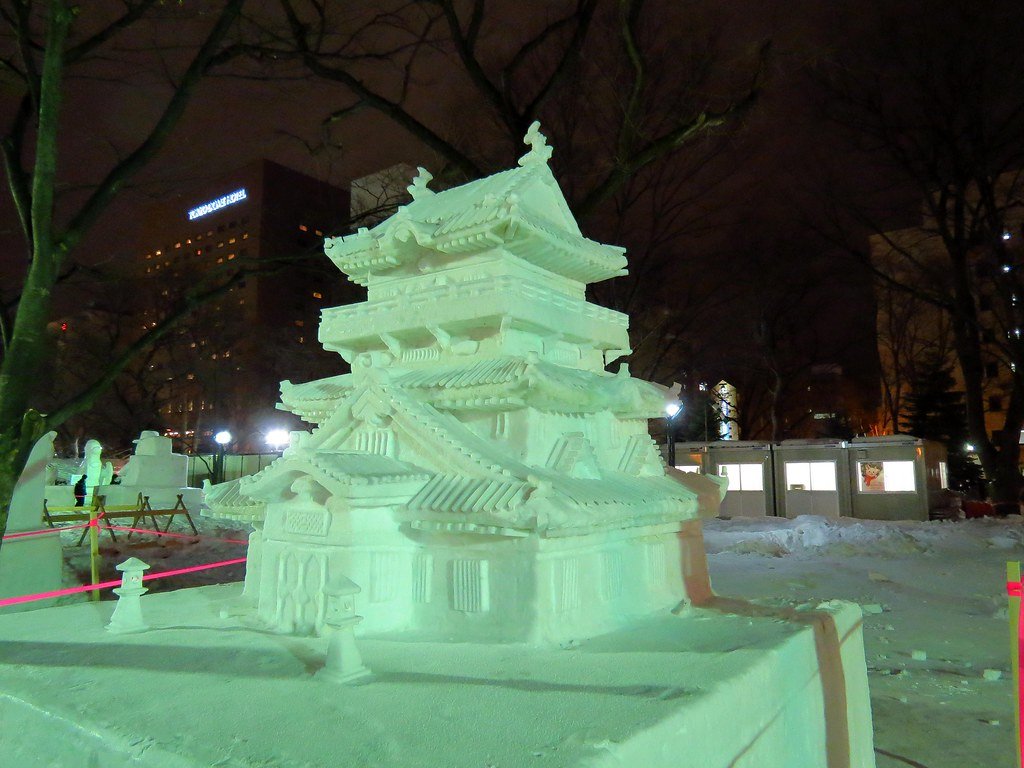
Attending these festivals not only offers a glimpse into Japan’s rich traditions but also allows you to connect with local communities and savor mouthwatering street food treats. You’ll find that these events foster a sense of joy and camaraderie that is simply infectious.
Landmarks like the Gion Matsuri in Kyoto and the Tanabata Festival in Sendai think enhance your understanding of Japan’s history and spirit.
These immersive experiences allow you to forge special memories while participating in unique cultural festivities that highlight Japan’s diversity.
Local Customs and Etiquette
Now that you’re preparing for your trip to Japan, understanding the local customs and etiquette will greatly enhance your experience. Japanese culture emphasizes respect and consideration for others, which is why adhering to social norms is crucial.
Misunderstanding these customs can lead to unintentional offenses, so being informed is key to navigating social interactions gracefully.
Tipping Practices
Etiquette in Japan surrounding tipping is quite different compared to many Western cultures. Generally, tipping is not customary and can be seen as rude or unnecessary.
Service staff are usually compensated well, and they pride themselves on their work. Instead of offering tips, show your appreciation through polite words, a warm smile, or by thanking the person for their service.
Additionally, if you are determined to tip for exceptional service, consider placing cash in an envelope rather than handing it directly to the person.
This gesture is more culturally appropriate; however, be prepared for the possibility of the recipient refusing the tip out of respect.
Public Behavior Norms
To blend in seamlessly, understanding Japan’s public behavior norms is important. Japanese people tend to be quite reserved in public settings, so loud conversations, heavy gesturing, and other overly expressive behaviors should be avoided.
Instead, maintain a lower volume when speaking and embody a calm demeanor, especially in crowded spaces like trains and restaurants.

It’s also important to be mindful of the personal space of others. A general rule is to stand at a distance that allows comfort for everyone.
Moreover, when using public transport, you should refrain from talking on your phone and be considerate of fellow passengers by avoiding excessive noise, whether it’s from music or conversations.
Furthermore, violating public norms can draw unwanted attention or even a disapproving glance from others. Standing out in an inappropriate way can lead to a negative impression of you, so be observant and follow the crowd to ensure that you resonate with local decorum.
Gift Giving Traditions
With Japan’s rich cultural heritage, gift giving traditions play a significant role in building relationships, whether personal or business-related.
Gifts are often given as a gesture of respect, gratitude, or to celebrate special occasions. It’s important to present gifts with both hands, and the manner of wrapping is as important as the gift itself.
Beautiful packaging goes a long way in expressing your thoughtfulness.
When offering a gift, avoid using white wrapping paper as it is traditionally associated with funerals. Instead, opt for colorful wrapping or a decorative bag designed for gift-giving.
These small gestures can greatly influence how your gift is received, ensuring you respect the prominent social practices of the culture.
Public gift exchanges are viewed as a way to strengthen bonds, but they are less common in day-to-day interactions.
You’ll find that gifts are more often shared during formal occasions or during holidays.
Understanding the significance behind these customs will allow you to navigate your interactions gracefully while showing respect for Japanese culture.
Final Words
Conclusively, preparing for a trip to Japan requires a thoughtful approach to ensure an enriching experience.
Familiarizing yourself with necessary customs, transportation methods, and cultural nuances will not only enhance your journey, but also demonstrate respect for the local culture.
From learning basic Japanese phrases to understanding etiquette in public spaces, your readiness to engage with the local environment will make a lasting impression.
Be mindful of, the beauty of Japan lies in its traditions and modernity coexisting harmoniously, and you have the opportunity to witness this first-hand.
As you get ready for your adventure, make sure to keep these 15 important factors in mind to avoid any potential pitfalls.
By planning ahead and being mindful of your surroundings, you are setting yourself up for a memorable trip filled with breathtaking sights, delectable cuisine, and immersive experiences.
Use this knowledge as a foundation to create meaningful connections during your travels, and you’ll find that Japan welcomes you with open arms, eager to share its rich heritage and exceptional hospitality.
FAQ
What are the best times to visit Japan?
The best times to visit Japan are during the spring (March to May) and autumn (September to November).
In spring, you can witness the beautiful cherry blossoms, while autumn showcases stunning fall foliage. However, always check local festivals and events, as they can impact travel plans and accommodation availability.
Do I need a visa to visit Japan?
Whether you need a visa depends on your nationality and the length of your stay. Citizens from many countries can enter Japan for short-term stays (up to 90 days) without a visa.
It’s important to check the specific entry requirements for your country on the official Japan Ministry of Foreign Affairs website prior to your trip.
What is the currency used in Japan, and should I carry cash?
The currency used in Japan is the Japanese Yen (JPY). While credit cards are accepted in many places, cash is still the preferred method of payment in some establishments, especially smaller shops, markets, and rural areas. It is advisable to carry some cash with you during your travels for convenience.
How should I prepare for the cultural differences in Japan?
Understanding cultural norms is necessary when visiting Japan. For example, it’s important to be respectful and polite, remove your shoes before entering homes or certain traditional accommodations, and bow when greeting. Familiarize yourself with common customs, etiquette, and phrases in Japanese to enhance your experience and engage positively with locals.
What transportation options are available for getting around Japan?
Japan has an extensive and efficient public transportation system, including trains, subways, and buses. The Japan Rail Pass is a cost-effective option for traveling long distances on trains, particularly for foreign tourists.
Within cities, using IC cards like Suica or Pasmo can make traveling on public transport seamless and convenient. Biking and walking are also great options for exploring urban areas.




